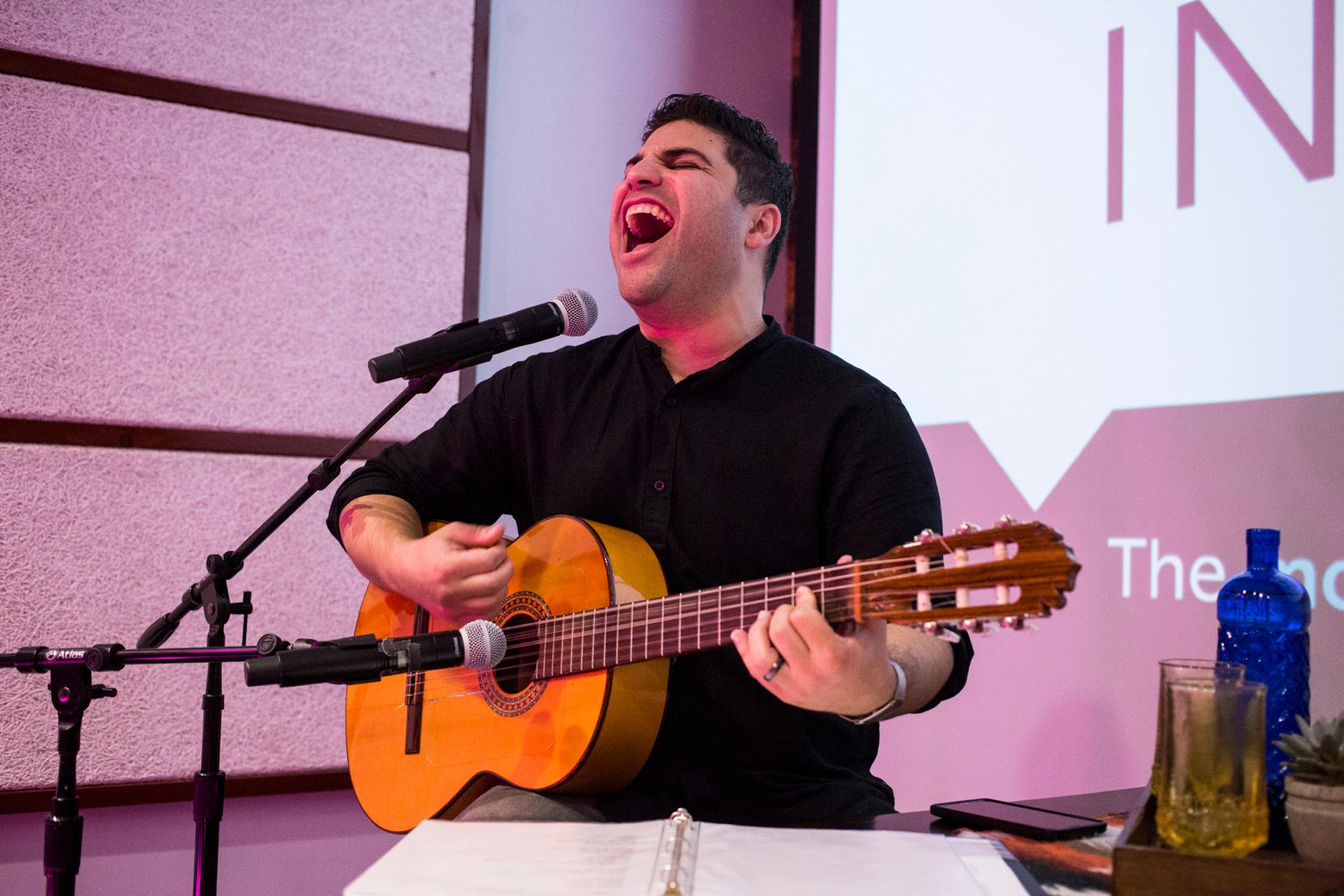Omar Naré runs through a song prior to his show, "VIVO: A Chicano Performance," at the BitWise, a tech hub with a long, rectangular theater in downtown Fresno, California, Nov. 11, 2017.
When you think of mariachi, you’ll likely picture a band of men in embroidered suits and sombreros, playing guitar, violin and trumpet for diners in a Mexican restaurant.
For Omar Naré, that was exactly the problem. Mariachi was veering off into the realm of a stereotype, or worse yet, a relic. Mariachi had stalled, and it needed new life.
But innovation is hard when a musical genre has become central to Mexican cultural identity. Omar’s grandfather came to Central California as a farm laborer from Mexico, and he brought mariachi with him. Omar grew up hearing mariachi at family get-togethers on his grandfather’s ranch in Sanger, California. His uncle taught him his first mariachi songs. As a child, Omar had a career as a mariachi singer, traveling around California on weekends playing festivals and venues. And he even had a chance at being a teenage Latin pop star.
Now Omar is creating music he calls nuevo mariachi. He plays shows in trendy venues, like art galleries — not in Mexican restaurants. He doesn’t wear the outfit associated with mariachis, which is called the charro. Usually, you’ll find him dressed simply in a button-down shirt. And Omar is writing new songs — with new chords and stripped-down instrumentation.
For Omar, nuevo mariachi is about telling the story of his Californian experience. But doing that means breaking the rules. Which raises the question: Is what Omar is doing still mariachi?
Photographer Brittany Greeson spent a day with Omar Naré and Jasmín La Carís as they prepared for their show, "VIVO: A Chicano Performance," at the BitWise theater in Fresno, California, on Saturday, Nov. 11, 2017.
This is an excerpt from an episode of “The New American Songbook,” which is produced by Heidi Shin and Ian Coss, in partnership with The GroundTruth Project, WGBH, and MassHumanities. Listen to the full podcast here.
